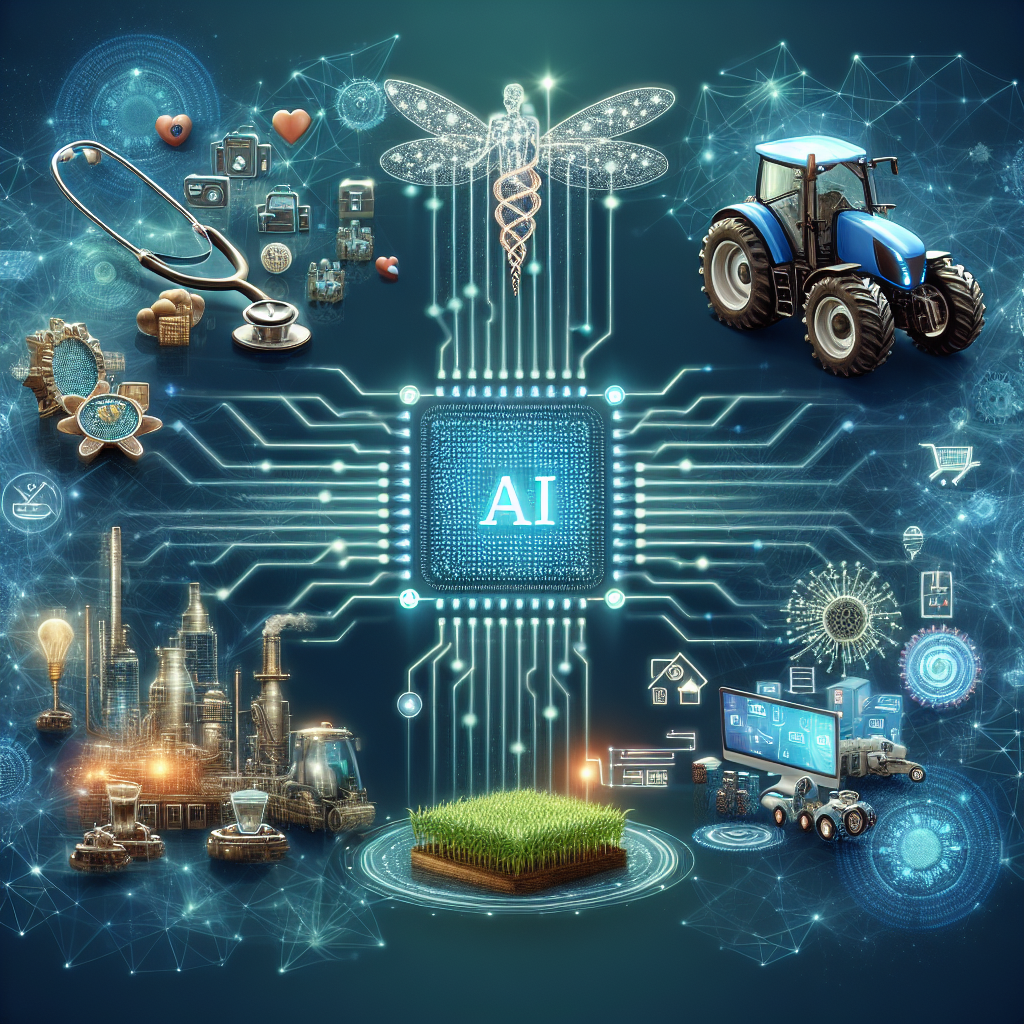In recent years, artificial intelligence (AI) has emerged as a transformative technology that is reshaping industries across the globe. From healthcare to finance to transportation, AI is being used to streamline operations, improve decision-making, and enhance customer experiences. However, as AI becomes increasingly prevalent in our daily lives, concerns about its potential to exacerbate inequality and perpetuate biases have also grown. In response to these concerns, there has been a movement towards democratizing AI – making it more accessible and inclusive to a wider range of users and organizations.
Democratizing AI involves removing barriers to entry and empowering more people to leverage the benefits of this technology. This includes providing access to AI tools and resources, promoting diversity in AI development and deployment, and ensuring that AI systems are transparent, fair, and accountable. By democratizing AI, we can ensure that the benefits of this technology are shared more equitably and that its potential risks are mitigated.
One of the key ways in which AI is being democratized is through the development of user-friendly AI platforms and tools that do not require extensive technical expertise to use. These platforms, such as Google’s AutoML and IBM’s Watson Studio, allow users to build and deploy AI models without needing to write complex code or have a deep understanding of machine learning algorithms. This democratization of AI tools is making it easier for businesses of all sizes to harness the power of AI and drive innovation in their industries.
Another way in which AI is being democratized is through the use of AI marketplaces, where users can access pre-built AI models and algorithms developed by third-party vendors. These marketplaces, such as Microsoft’s Azure Marketplace and AWS Marketplace, allow organizations to quickly and easily integrate AI capabilities into their existing systems without the need to develop them from scratch. This not only saves time and resources but also opens up new opportunities for smaller businesses and startups to leverage AI in their operations.
In addition to making AI tools more accessible, democratizing AI also involves promoting diversity and inclusivity in AI development and deployment. This includes ensuring that AI systems are trained on diverse datasets that represent a wide range of perspectives and experiences, as well as increasing the representation of women and minority groups in AI research and development. By promoting diversity in AI, we can help to prevent bias and discrimination in AI systems and ensure that they are fair and equitable for all users.
Furthermore, democratizing AI also involves ensuring that AI systems are transparent, explainable, and accountable. This includes providing users with clear explanations of how AI systems make decisions, as well as mechanisms for challenging and appealing these decisions. By making AI systems more transparent and accountable, we can build trust with users and ensure that AI is used in a responsible and ethical manner.
Overall, democratizing AI is essential for ensuring that the benefits of this transformative technology are shared more equitably and that its potential risks are mitigated. By making AI more accessible, diverse, and transparent, we can harness its power to drive innovation and improve outcomes across a wide range of industries.
FAQs:
Q: What are some examples of industries that are being reshaped by AI?
A: AI is being used in a wide range of industries, including healthcare, finance, transportation, retail, and manufacturing. In healthcare, AI is being used to analyze medical images, predict patient outcomes, and personalize treatment plans. In finance, AI is being used to detect fraud, automate trading, and personalize customer experiences. In transportation, AI is being used to optimize routes, improve safety, and develop autonomous vehicles. In retail, AI is being used to personalize recommendations, optimize inventory, and enhance the shopping experience. In manufacturing, AI is being used to optimize production processes, predict maintenance needs, and improve quality control.
Q: How is AI being democratized?
A: AI is being democratized through the development of user-friendly AI platforms and tools, the use of AI marketplaces, and the promotion of diversity and inclusivity in AI development and deployment. By making AI tools more accessible, promoting diversity in AI, and ensuring that AI systems are transparent and accountable, we can ensure that the benefits of AI are shared more equitably and that its potential risks are mitigated.
Q: What are some potential risks of AI?
A: Some potential risks of AI include bias and discrimination, lack of transparency and accountability, job displacement, and cybersecurity threats. Bias and discrimination can occur when AI systems are trained on biased datasets or reflect the biases of their developers. Lack of transparency and accountability can make it difficult to understand how AI systems make decisions or challenge these decisions. Job displacement can occur when AI automates tasks that were previously done by humans. Cybersecurity threats can arise when AI systems are vulnerable to hacking or manipulation.
Q: How can we ensure that AI is used responsibly and ethically?
A: We can ensure that AI is used responsibly and ethically by promoting diversity and inclusivity in AI development and deployment, ensuring that AI systems are transparent and accountable, and establishing clear guidelines and regulations for the use of AI. By making AI more accessible, diverse, and transparent, we can build trust with users and ensure that AI is used in a responsible and ethical manner.

